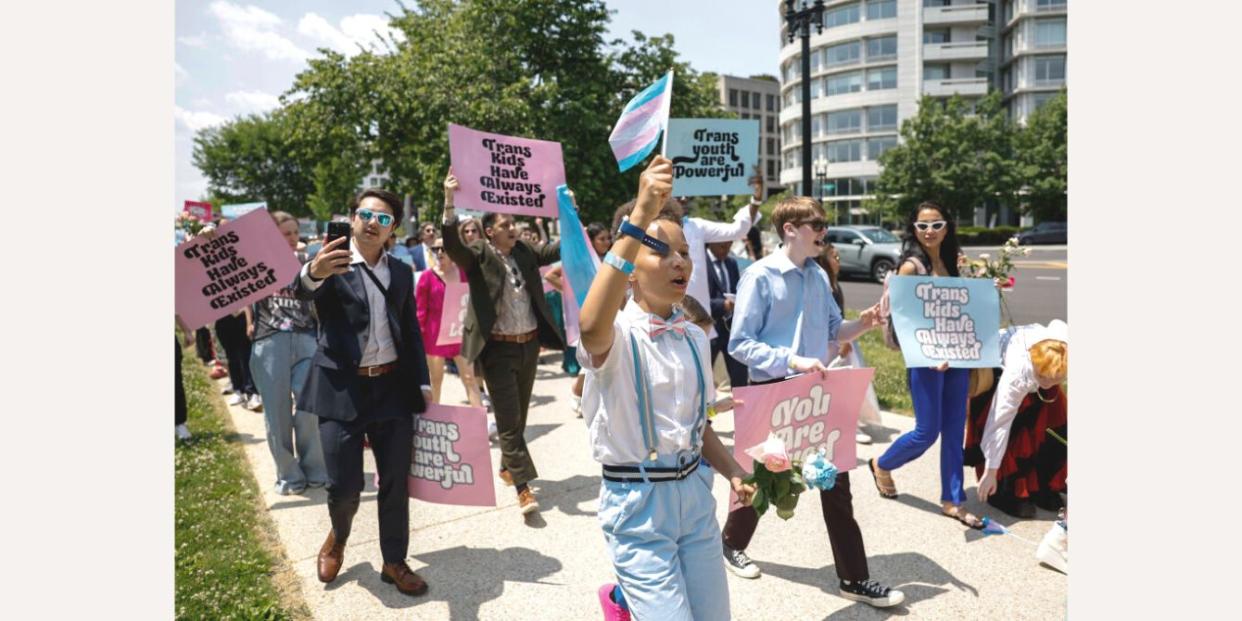Gender affirmation plays a huge role in the mental health of trans youth, new study shows

A new study from the Trevor project, based on texting 9,000 transgender and nonbinary kids, concluded that they need one thing the most to have better mental health: gender affirmation and validation. Researchers asked them specifically, “What are things that others do that make you feel happy (or euphoric) about your gender?”
Their answer points to a continued increased need for gender-affirming care for trans youth, which has been associated with improved mental health. In one study, access to this type of care lowered their odds of suicidality by 73%, and lowered their odds of moderate or severe depression by 60%.
So, what is gender affirmation and how does it cause gender euphoria? That’s what the new Trevor Project set out to help others understand. “Gender euphoria is defined as satisfaction or joy caused when one’s gendered experience aligns with their gender identity, rather than with the gender they were assigned at birth,” they report. Gender affirmation that evoked those feelings of euphoria were categorized into four themes, alongside some examples of each:
-Affirming communication: “One young person expressed a preference for ‘compliments that [weren’t] gendered (saying ‘attractive’ instead of ‘gorgeous’ or ‘handsome’). Another stated, ‘I like it when people don’t call me by a gender.’” the study explained.
-Inclusivity and belonging: One respondent said they felt this way when others “genuinely treat[ed] me like they would a friend or person of that gender…. I don’t need to be treated like a third category of trans. I need to be treated like a 22-year-old girl who never learned a few things.”
-Appearance affirmation: Kids in the survey responded that, for example, their parents buying them items that aligned with their gender was affirming, or complimenting an outfit as “more masculine” in alignment with their gender preference.
-Support and Respect: Outward and verbal expressions of support mattered, including apologizing if they forget about their preferred pronouns, or validating how tough their experience has been.
For more examples on how to support and affirm transgender youth, you can check out further examples of each way participants said others can help.


